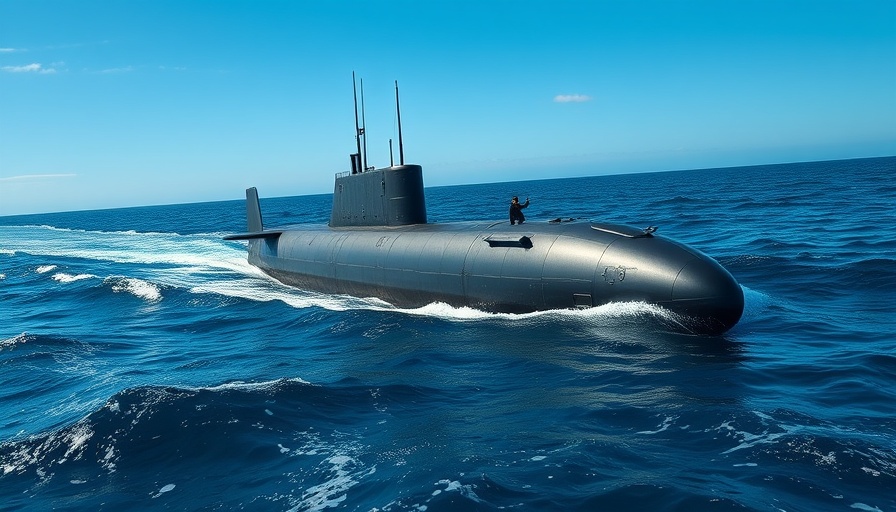
Poland’s Urgent Naval Decision: Selecting a New Submarine Design
With the end of the year approaching, Poland stands at a critical juncture in its defense strategy. Defense officials are actively evaluating submarine designs as part of the Orka (Orca) submarine program, having sent requests for information to six countries. As Prime Minister Donald Tusk emphasizes the importance of this acquisition, Poland's reliance on the outdated Kilo-class submarine, the ORP Orzel, makes this decision not just timely, but urgent.
Understanding the Context: Why Are New Submarines Essential?
The need for modern submarines is underlined by Poland's precarious position in the geopolitically sensitive Baltic Sea. Current capabilities are insufficient to address the challenges posed by regional threats. The proposed submarines will incorporate advanced technology, including cruise missile systems capable of enhancing Poland's deterrence strategy. According to Tusk, this program represents Poland’s largest naval initiative to date, underscoring the significance of making an informed choice for the country’s security future.
Choosing the Right Partner: The Role of International Bidders
Several major defense contractors, including France’s Naval Group, Italy’s Fincantieri, Spain’s Navantia, Sweden’s Saab, and the U.K.'s Babcock International, are vying for the Polish submarine contract. Cooperation agreements with Poland's state-run defense group, PGZ (Polska Grupa Zbrojeniowa), show how these companies are not only selling submarines but also looking to integrate their technology and expertise into the local defense sector. This collaboration model emphasizes technology transfer, local capacity building, and strategic partnerships.
Insights on Bid Evaluations: Leading Contenders
According to recent evaluations by Polish defense experts, the bids from Germany, Italy, and Sweden have emerged as the front runners due to favorable assessments. However, the process remains competitive as alternatives, including South Korea’s Hanwha Ocean, continue to seek partnerships that promise local infrastructure development, maintenance, and operational capabilities.
Hanwha's proposal centers on its KSS-III-class submarines, aiming to establish Poland as its first export market. If successful, this could revolutionize Poland's naval operations and establish a precedent for future international military collaborations.
Potential Regional Impact: Implications for Security Dynamics
The development of Poland's submarine program could have wider implications for security in the region. As countries like Canada and Saudi Arabia also explore submarine acquisitions, there is a growing interest in modernizing naval forces globally. Countries will not only look to enhance their military capabilities but also create networks of defense arrangements and collaborations that could reshape geopolitical landscapes.
What Lies Ahead: Future Trends in Naval Technology
Looking ahead, the shift towards advanced naval technologies will likely accelerate. Submarines equipped with stealth capabilities and multi-role functionalities are expected to become the norm, catering to a variety of operational scenarios from anti-submarine warfare to intelligence gathering.
As Poland moves forward with its submarine aspirations, observing the outcomes of this procurement process could provide valuable lessons on international collaborations and defense readiness in an evolving military landscape.
Call to Action: Engaging with the Naval Defense Community
For those interested in the future of naval defense, following Poland's procurement decisions and engaging with the defense community could provide deeper insights into global military trends. As countries enhance their naval capabilities, understanding these developments offers a window into the future of regional and global security strategies.
 Add Row
Add Row  Add
Add 




Write A Comment